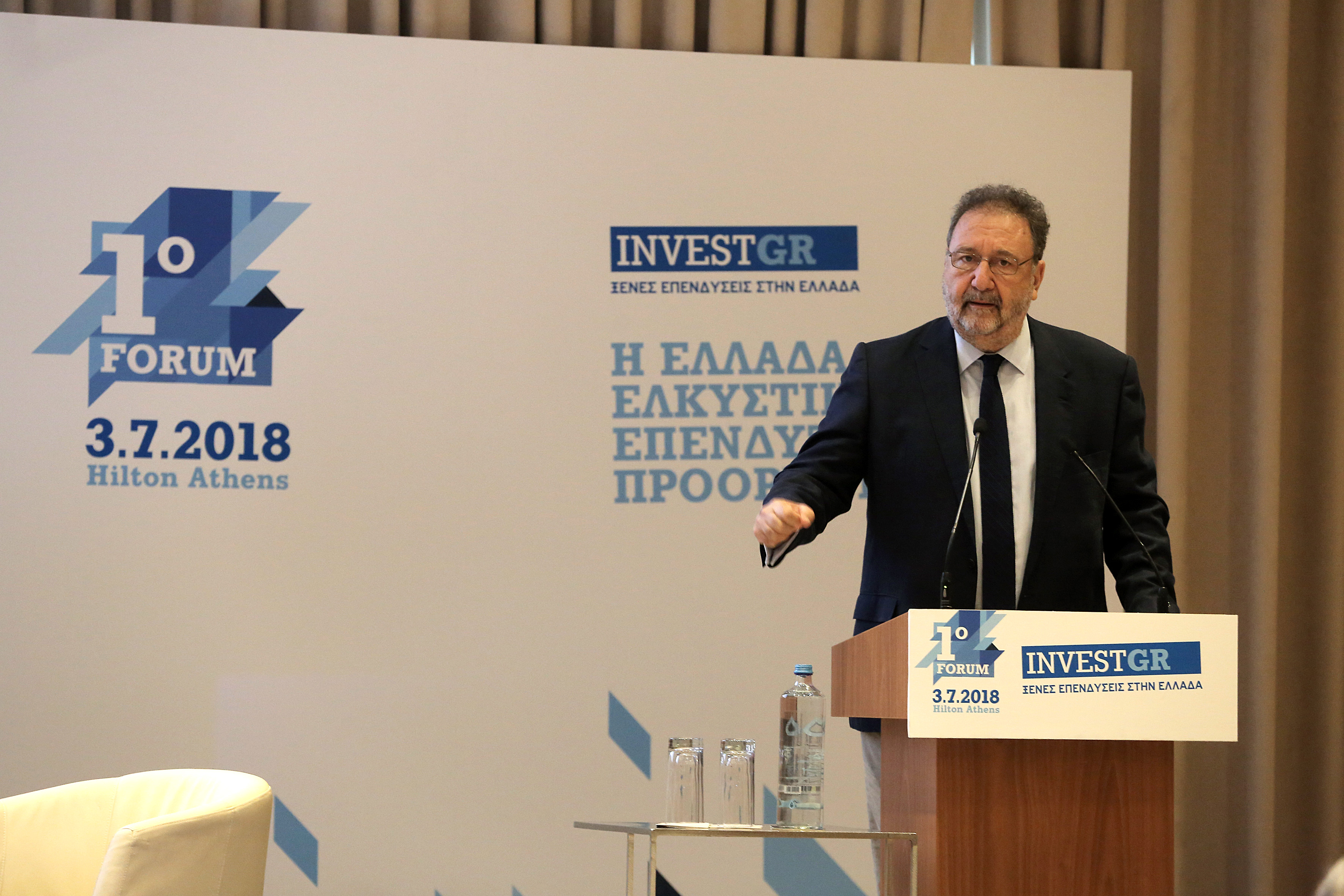Top executives of multi-national companies that are doing business in Greece presented their own “manifesto” on the preconditions for luring foreign direct investment in Greece, during yesterday’s first financial forum of 2018 InvestGR-Foreign Investment in Greece.
The six parameters listed that can influence a company’s decision to invest are the public sector and the regulative framework, taxation, the justice system, human resources, innovation, and infrastructure.
The text that presents the views of the company executives identifies the problems that multinationals face in each of the above sectors, and solutions are proposed in each of the six areas.
The aim of the officials at multinationals operating in Greece is to persuade the state to undertake actions and to solve problems, so as to help managers of multinationals to persuade their headquarters to include Greece on the map of possible investment options.
Yorgos Pagoulatos, a professor at the Economic University of Athens, had the academic oversight and was responsible for drafting the text with the proposals of the heads of the multinationals operating in Greece.
The head of InvestGR, Andreas Yannopoulos, said that the forum aimed to probe the question, “Can Greece become an attractive investment destination, and under what conditions?”
Yannopoulos aims to hold the forum on a yearly basis, to ensure a medium and long-term monitoring, so as to compare what happened over previous years and what did not. It will be a sort of follow-up, which will attribute credit or blame where they are due.
Of the 170 companies in Greece with a turnover of over 100mn euros, 51 are controlled by multinationals, with a turnover of 11.2bn euros. The total inflow of direct foreign investment was 3.6bn in 2017, compared to 2.8bn euros in 2016.
That is the best annual performance since the beginning of the economic crisis. However, the ratio of direct foreign investment to GDP is among the lowest in the eurozone.
Participants in the forum expressed the view that Greece can become attractive for foreign investors, especially in sectors in which it has a comparative advantage. That includes investment in information technology and communications.
Over the last three years, Greece has taken steady and decisive steps in implementing the reforms of the three bailout memorandums, which address problems in attracting direct foreign investment.
Still, there is substantial room for improving basic aspects of the environment for business activity. These include administrative procedures, regulation, the legal and tax framework, human and intellectual capital, and infrastructure.





